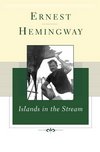A slightly briefer version of this appears on Goodreads.
—–

Archie Meets Nero Wolfe: A Prequel to Rex Stout’s Nero Wolfe Mysteries by Robert Goldsborough
My rating: 2 of 5 stars
Back in Junior High when I first discovered the Nero Wolfe/Archie Goodwin books, I was quite relieved to learn that his family had approved a new author to write new books in the series. Murder in E Minor was pretty good — even if it sort of spoiled A Family Affair, it read like Stout on an off-day. His follow-up, Death on a Deadline, did some interesting things and was good enough. But from there, the quality really started slipping, and I can honestly say I really didn’t enjoy Silver Spire or The Missing Chapter at all — not because the latter was about an author continuing a popular series and dealing with backlash from the fans (that was actually sort of amusing). The passion and drive Goldsborough had initially was clearly gone — it’s this experience that keeps me from wholly embracing Ace Atkins as Spenser’s new scribe (as much as I really want to).
So why did I pick up Archie Meets Nero Wolfe? Well, it’d been eighteen years — so for Goldsborough to come back, there had to be a good reason — a story he cared about. He had time to get the voice right, the details “just so.” I was more than a little curious, too, just how did he see this initial meeting?
Oh, and, fine — I’ll be honest. You put out anything with the label “Nero Wolfe” on it and I’ll read it. Janet Evanovich, Nick Hornby, or Richard Russo wants to take a crack at it? I’ll bite.*
But, I did put it off for months. Take that, Goldsborough.
But I had hope. And that hope was buttressed after a few pages when I read:
…I got grilled by a surly lieutenant named Rowcliff, who had bulging eyes and a snarling voice that broke into a stutter when he got excited, which seemed to be much of the time.
He kept trying to get me to say that I fired at the robbers first. I was nervous, but when I wouldn’t budge off my story, his stuttering got worse, which would have been funny under different circumstances.
. That was a nice character moment. I looked forward to more of them. I even had Evernote ready to capture them like that one. That’s the only quotation I bothered grabbing.
There are two things you have to have (at this point) for an acceptable (if not good) Nero Wolfe/Archie Goodwin book. You need the characters we know and love and an interesting plot. Here, Goldsborough falls short on both counts.
To be fair(-ish), I thought he got Saul Panzer and Fred Durkin fairly close to right. Fritz and Rowcliff were pretty dead-on (and not really that present), maybe Stebbins, too. Cramer, Orrie and Bill were off. It was nice to spend some time with Del Bascom — and given how little time we spend with Bascom in the books, you can’t really judge how Goldsborough did with him.
Archie’s a tough one to peg — he’s new to New York at this time, fresh out of Ohio — so we can understand he’s not the detective we meet in Fer-de-Lance yet. He has to learn the city, learn more about being a detective — especially doing it Wolfe’s way, and essentially grow up. Sure, there’s traces of our man here — his attitude, his smart-mouth, his ability to handle himself in a moment of crisis. We see Archie’s appreciation for non-gourmet, but well-prepared, food — and a palate ready for education once he comes into Fritz’ influence. I don’t remember him being so fixated on coffee, either. I think there’s enough of Archie there to give Goldsborough credit for his characterization, but something’s holding me back.
I didn’t buy Wolfe at all — this is the big one. The others are seen in different lights than we normally are exposed to them, which can explain away a lot of the weaknesses of their portrayals — but you have to nail Wolfe or the whole thing is a waste of time. And beyond the beer, the dramatic entrance, his provision for guests . . . it was just a fat guy in a suit playing a part.
And as for plot? Pfui. This wasn’t much of a mystery, the bad guys do most of the work. Saul does almost everything commendable (and yes, you could make the argument that this is often the case) — Wolfe himself doesn’t solve much at all. He still holds the big gathering in his office — pretty much because he has to.
A lot of the attitudes expressed — say, for the child’s emotional well-being following the kidnapping, for example — seemed anachronistic. As did the language the characters used to describe that and similar ideas. I’d stopped caring by the point I noticed these piling up, so I didn’t take notes.
Lastly, I don’t buy at all the explanation Wolfe gives for hiring Archie. It’s just we’re at the end of the book, and it has to happen, so he makes up an excuse with no real justification behind it.
In the end, I’ve got to call this one unsatisfactory
If Robert Goldsborough dips back into this well? Will I read his next one? Yes, absolutely. I’ll hate myself, but I will.
I might wait a year or two, first.
—–
* I have nothing against any of these authors, at all, I like them a lot. I just don’t think they’re right for the books. Lee Goldberg, on the other hand…
 Bright’s Passage
Bright’s Passage










